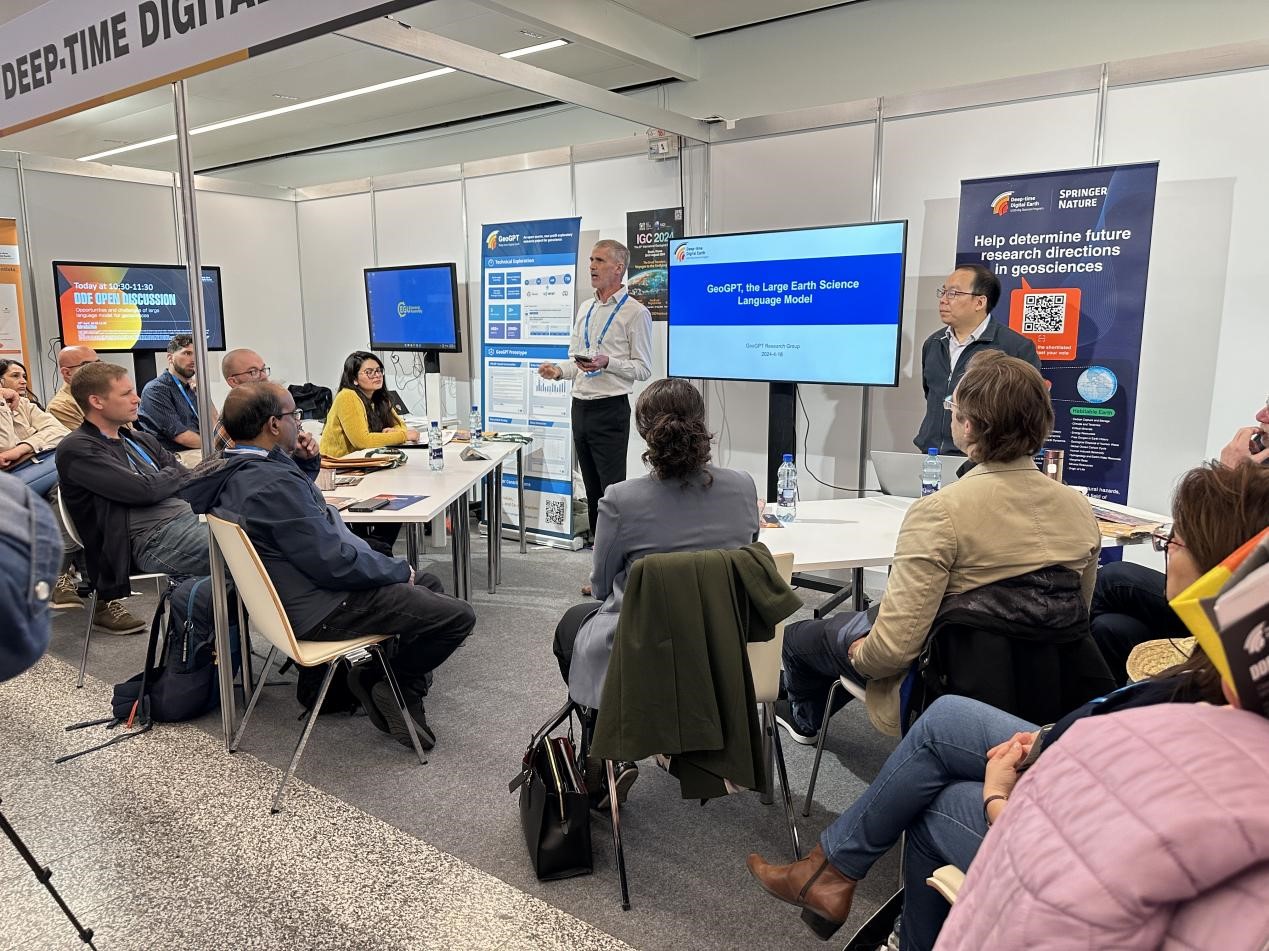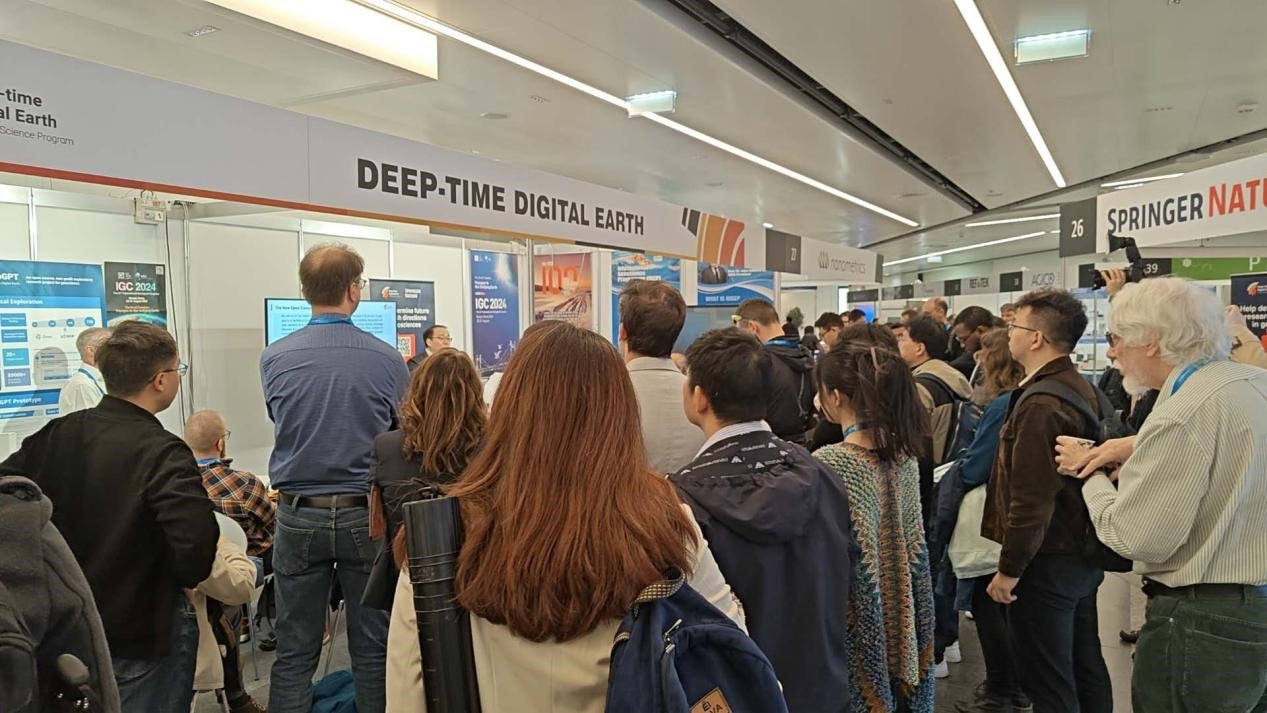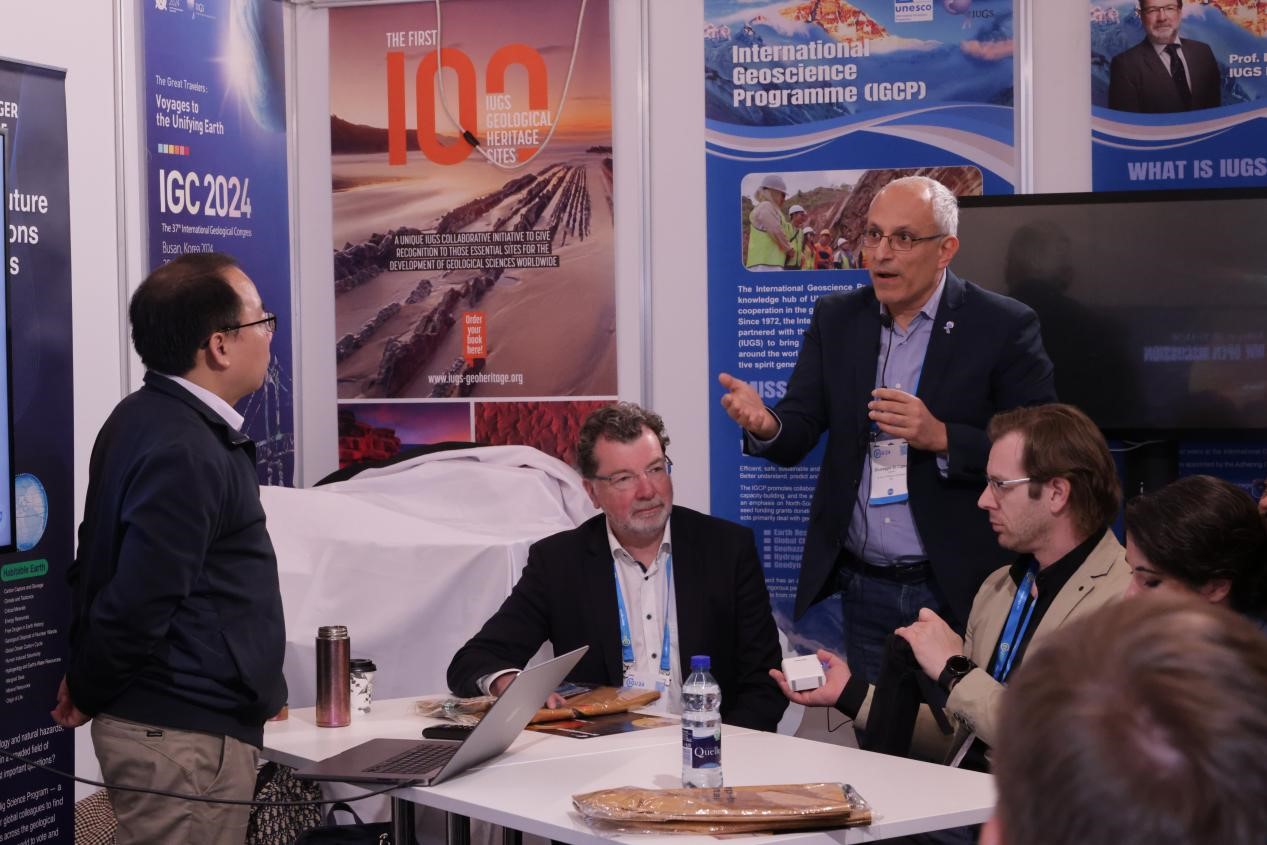EGU24 Sees Thriving Open Discussion on "Opportunities and Challenges of LLMs in Geosciences" Led by DDE
VIENNA, AUSTRIA – APRIL 18, 2024 – The Deep-time Digital Earth (DDE) hosted a pivotal Open Discussion during the EGU24 General Assembly at DDE booth, titled "Opportunities and Challenges of Large Language Models (LLMs) for Geosciences." This interactive session aimed to openly address queries regarding DDE, highlighting the potential of AI and LLMs, specifically GeoGPT, to transform the landscape of geoscientific research. Gathering representatives from over 20 institutions and organizations, the event underscored DDE's commitment to collaborate with scientists, publishers, and stakeholders in reshaping the way earth sciences are studied and understood. Prof. Jieping Ye and Prof. Mike Stephenson co-chaired this discussion.

Prof. Jieping Ye, leader of the GeoGPT project, shared significant progress in ensuring the appropriate attribution of resources and the importance of cleaning up databases to avoid biases in modeling. He emphasized that the team has gained substantial knowledge, especially in managing vast amounts of data and maintaining its integrity. Jieping also discussed the challenges and strategies for handling legal considerations, particularly in Western cultures, indicating active engagement with legal experts and stakeholders to achieve compliance across regions and establish universal standards.
The session also delved into the methods employed by DDE to maintain data accuracy and freedom from bias. Jieping explained that the team continuously refines its processes to ensure accuracy and integrity, being cautious about the potential biases and limitations associated with open-access data. DDE focuses on leveraging diverse information sources and refining models through rigorous testing and validation.
Regarding the scientific consensus and accuracy in GeoGPT's responses, Jieping underlined the importance of collaboration and feedback from the scientific community. By actively engaging with scientists to gather inputs and address concerns, DDE fosters transparency and inclusivity, aiming to create a tool that embodies the collective wisdom and insights of the entire scientific community.

Mike, as the first Governing Council President of DDE and also as a seasoned tester of GeoGPT, attested to its capabilities and occasional limitations, emphasizing the need to acknowledge its potential while identifying areas for improvement. He stressed the significance of embracing the challenges and opportunities presented by AI and LLMs like GeoGPT, especially in under-resourced regions where access to scientific knowledge is limited.

Another contributor to the discussion, elaborated on the alignment with the DDE, stating that DDE's approach comprises two main aspects: leveraging existing expertise and resources, and fostering inclusivity and diversity in the training process to ensure the models reflect a wide array of perspectives and knowledge.
Feedback on GeoGPT's reception in regions with limited access to scientific resources was overwhelmingly positive, with Jieping noting its potential to democratize knowledge access and empower individuals in those areas. By offering access to a vast amount of information, GeoGPT contributes to bridging the gap in scientific understanding and fostering global collaboration.
In his closing statement, Mike expressed gratitude to all participants and underlined the profound potential of GeoGPT to impact global knowledge accessibility. He called for continued collaboration to realize the vision of making scientific knowledge universally accessible.
The Open Discussion at EGU24 not only addressed the pressing issues and skepticism surrounding DDE and LLMs in geosciences but also charted a roadmap for AI-assisted advancements in the field, reinforcing DDE's commitment to innovation and global cooperation in scientific research.
